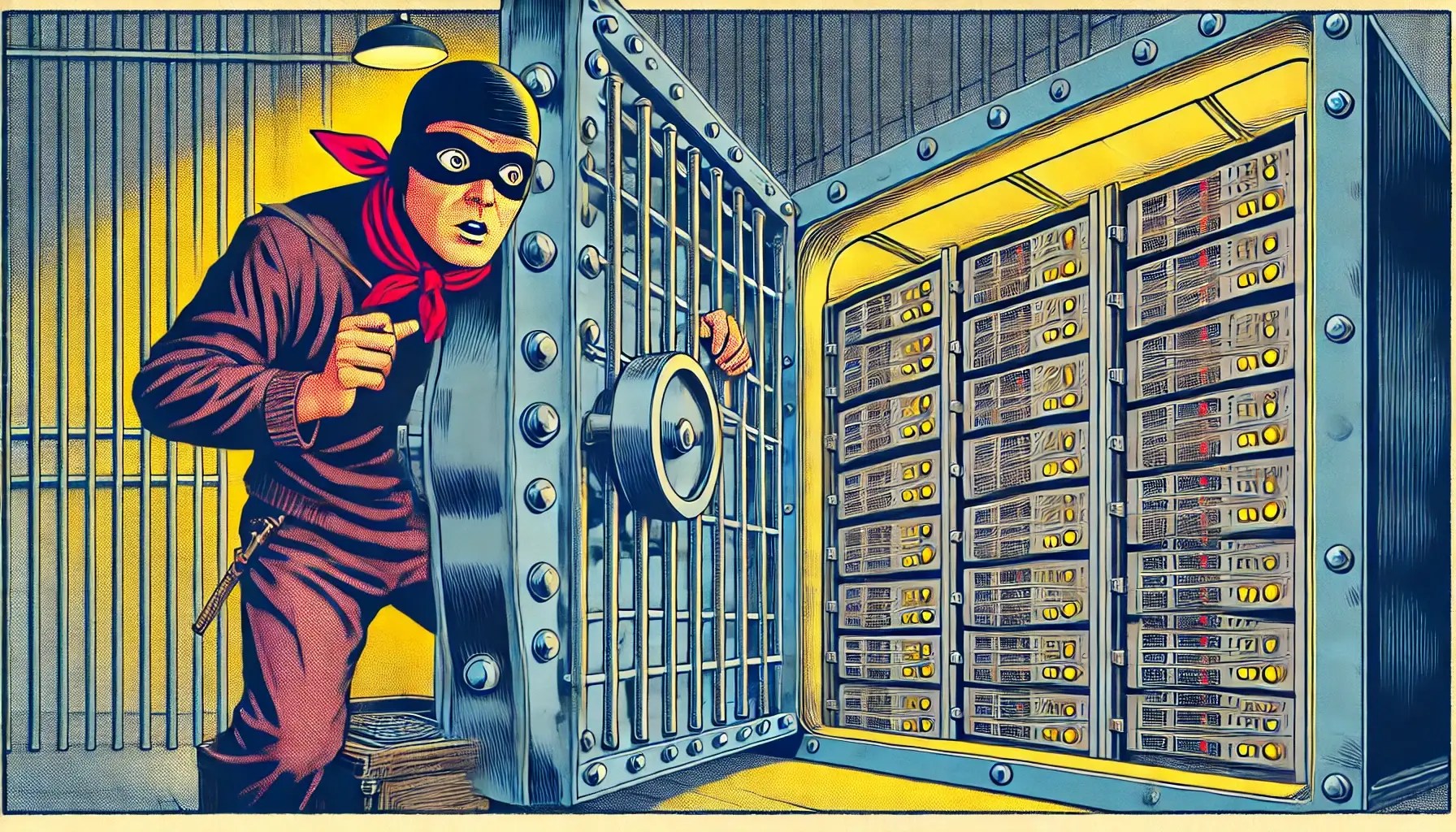Dismantling the Cryptocurrency Cult

The cryptocurrency cult is more dangerous than anybody realizes. Cryptocurrency was supposed to be a revolution – a decentralized, government-free financial system for the modern age. It promised freedom, transparency, and independence from the banks and bureaucrats who controlled traditional currencies. But the reality is far from the dream. Cryptocurrency has become a speculative, centralized system benefiting the wealthy elite, all while distracting us from meaningful solutions to economic inequality.
Behind the hype lies a cult-like devotion to myths: the myth of decentralization, the myth of financial independence, and the greatest myth of all – the identity of Satoshi Nakamoto, the enigmatic creator of Bitcoin. To dismantle the cryptocurrency cult, we must confront these myths and propose real alternatives that can serve ordinary people, not just the rich.
The Mystery of Satoshi Nakamoto: A Simpler Theory
Satoshi Nakamoto’s identity is one of the most enduring mysteries in modern finance. The anonymous creator of Bitcoin – whether an individual or a group – has never been revealed, and that anonymity has fueled countless theories. Some claim Satoshi was a team of cryptographers working in secret. Others suggest figures like Hal Finney or Nick Szabo. HBO even produced a documentary claiming to have unmasked Satoshi, though its conclusion was widely discredited. Wild conspiracies abound, ranging from claims of government involvement to elaborate hoaxes.
But I’ve speculated on a simpler, more plausible theory – one that few others seem to agree with, but which no investigation has seriously attempted to disprove.
What if Satoshi Nakamoto is David Chaum, the creator of DigiCash? Chaum pioneered the concept of cryptographic money decades before Bitcoin existed. DigiCash, while innovative, failed to achieve widespread adoption. Yet its principles – digital transactions secured by cryptography – laid the groundwork for what Bitcoin would later become. It’s conceivable that Chaum, or someone who deeply understood his work, revived the idea under the Bitcoin brand, leveraging the lessons learned from DigiCash’s shortcomings.
Alternatively, what if Satoshi is Michael Saylor, the CEO of MicroStrategy, or someone connected to him? Saylor has become one of the largest institutional holders of Bitcoin, wielding significant influence in the market. His resurgence from the dot-com crash coincided with Bitcoin’s rise, and his investment strategy seems designed to solidify his legacy in the crypto space. While this theory is speculative, it’s not far-fetched: either Saylor or someone in his orbit could have financed Bitcoin’s creation, ensuring a position of early control.
What makes these theories compelling is their simplicity. Unlike the more elaborate claims, they propose that Satoshi was either the person who first conceptualized digital currency or someone with a vested financial interest in Bitcoin’s success. While this remains speculation, no investigation has been conducted to disprove these possibilities. The ongoing mystery around Satoshi’s identity may serve to protect the system’s mystique, which helps maintain the illusion of decentralization.
Cryptocurrency’s Broken Promises Are Astounding
Bitcoin’s founding myth is just one of many lies that have sustained the cryptocurrency cult. While the early rhetoric promised freedom from government control, cryptocurrencies have become tools for manipulation by powerful individuals and institutions.
Take Donald Trump’s administration, for example, which floated the idea of stockpiling Bitcoin to strengthen U.S. dominance in the digital currency space. Similarly, Elon Musk’s public manipulation of Dogecoin (DOGE) demonstrates how easily influential figures can exploit crypto markets for personal gain. Musk’s actions essentially transformed DOGE into a quasi-government-controlled asset by tying it to his business ventures, contradicting the original promise of decentralization.
Cryptocurrency also fails to serve those who need financial freedom the most. Poor and working-class people don’t have thousands – or millions – of dollars to invest in speculative, volatile projects like cryptocurrency. For someone with $10,000 in savings, Bitcoin would need to increase tenfold or more to provide meaningful returns – a gamble most can’t afford to take. The promise of decentralization rings hollow when the system inherently favors those with more money to risk.
Cryptocurrency Is A System Designed to Entrench Wealth
Cryptocurrency is not a revolution; it’s a mechanism for entrenching wealth. Efforts to eliminate physical money and shift toward fully digital economies disproportionately benefit the wealthy. Without cash, people lose autonomy over their money. Digital systems – whether controlled by governments, banks, or crypto investors – can be manipulated, tracked, or restricted, leaving ordinary people vulnerable.
This is part of a broader trend. Even the push to phase out the penny is framed as modernization but serves to make physical currency less accessible. Digital-only systems consolidate power in the hands of those who already control vast resources, creating a system where the wealthy can pass their “keys” down to their descendants while everyone else is left with nothing.
Breaking the Cryptocurrency Cult Will Be Costly Now
The cryptocurrency movement has devolved into a cult, complete with evangelists, dogma, and promises of salvation. Early adopters profit handsomely while luring others into a speculative game they cannot win. Cryptocurrency’s failures aren’t just technical – they’re ideological. It has failed to deliver on its promises of freedom, transparency, and decentralization. Instead, it has become a playground for the wealthy and a trap for the unwary.
It’s time to dismantle the myths propping up the cryptocurrency cult and focus on practical solutions that actually help people.
Revolutionizing Digital Barter With A Decentralized Rewards Points Exchange
While cryptocurrency offers little more than speculative bubbles and empty promises, there are tangible ways to create decentralized systems that benefit ordinary people. One such idea is a decentralized rewards points exchange.
Here’s how it would work: People accumulate rewards points from everyday purchases – groceries, fast food, credit cards, flights – but these points are often locked into silos. A McDonald’s customer can only redeem points at McDonald’s, and even then, they’re restricted in how much they can use at once. Frequent flyer miles and credit card points similarly favor those who already spend the most.
A decentralized exchange would unlock this value. Imagine trading $10 worth of McDonald’s points for $10 in grocery store credits or pooling rewards to exchange for airline miles. This system could work for people with limited resources, creating a kind of digital barter that allows small amounts of value to be exchanged for other necessities.
The beauty of this system is that it wouldn’t disrupt corporations. Companies would still control how their points are distributed and redeemed. But it would give individuals the ability to trade their excess points or devalue them for something they need more. In this way, a rewards points exchange could function much like Facebook Marketplace does for goods – creating a global network of exchange that’s more flexible and inclusive.
This could be a revolution. A significant step in a better direction for poor people especially. It would allow people to transform small, fragmented bits of value into something more useful, improving their ability to navigate everyday needs.
When Will The Cryptocurrency Casino Crap Out?
Cryptocurrency was never about freedom. It was about creating a myth – a decentralized revolution that masked a deeply centralized, speculative, and manipulative system. The cult-like devotion to Bitcoin and its imitators has distracted us from practical solutions to real economic problems.
The cryptocurrency cult has done nothing but pave the way for modern American Nazism. That must be stopped before it is too late.
A rewards points exchange may not solve all of these problems, but it offers a tangible, inclusive alternative. By unlocking the value of everyday purchases, it could help ordinary people make the most of what they already have. It’s time to move past the empty promises of cryptocurrency and focus on building systems that work for everyone.
